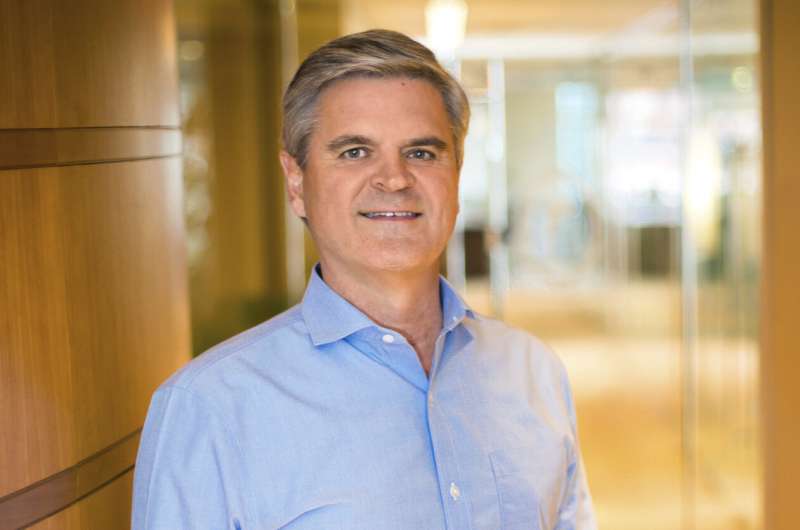AOL founder on how pandemic is changing spread of tech jobs

Most people questioned AOL co-founder Steve Case’s judgment when he joined the online company then known as Quantum Computer Services in 1985—a time when the World Wide Web didn’t even exist.
Case, now 63 and sitting on an estimated fortune of $1.5 billion, faced more skepticism and bewilderment nearly a decade ago when his investment firm, Revolution Ventures, launched an initiative dubbed “Rise of the Rest.” The goal: establish more technology hubs in overlooked and sometimes decaying cites far from Silicon Valley, Seattle, New York and Boston—places that had long attracted the majority of funding and talent driving the digital transformation reshaping the U.S. economy.
After covering more than 11,000 miles on bus trips to more than 40 U.S. cities, Case felt like he had already been making headway before the pandemic struck nearly two years ago. Now he believes the remote working phenomenon spawned by the pandemic will further diversify the technology landscape and help narrow the economic divides contributing to social strife in the U.S.
Q: How has the pandemic accelerated the efforts to expand tech jobs to new areas?
A: Clearly, more people now are thinking about life in a different context and have more flexibility to live and work somewhere. That does kind of create an “unblock” in terms of Silicon Valley dominance. I think that that will benefit a lot of cities and a lot of entrepreneurs.
Q: How so?
A: The last half century people growing up all across the country who wanted to be part of the innovation economy decided to leave where they were, even if they loved where they were, and go to the coasts, particularly Silicon Valley. Now that’s starting to reverse. Some people may still choose to be in Silicon Valley, but at least they no longer feel like they have to be in Silicon Valley. That does create opportunities for people to decide where they want to live, decide where they want to start a company.
Q: What are some of the challenges that still need to be addressed?
A: This whole idea of remote or hybrid work creates more opportunity, but it’s also a grand social experiment. How exactly it plays out is going to be tricky. Will people working remotely feel like they are left out because they are not in the room where it happens? You also need to have the right infrastructure in place, including broadband, to support this next chapter. So there are a bunch of challenges, but at least from my standpoint people are at least more aware of the opportunity and more interested in the opportunity.
Q: Why is this trend so important?
A: What many of those entrepreneurs are craving is doing things in a different way, actually destroying jobs in other parts of the country. That’s part of the process of creative destruction, part of the process of innovation. You can’t stop it, but what you can do is back companies in those other places that can create jobs there to offset, at least in part, the jobs that are being lost.
The only way to have a country that really is united is to make sure that it’s inclusive. There are some people in some places doing really well, and there are people in other places struggling, being left behind and feeling kind of left out. That obviously plays out in our politics. If we are successful in getting more people to invest in these other cities, some of the Fortune 500 companies of tomorrow will be in those cities and they will create tens of thousands of jobs in those cities. That will give people in those places reasons to be more optimistic about the future, as opposed to anxious about the future.
Q: So you think this economic divide has been fueling many of the dynamics that have seemed to pull the U.S. further apart?
A: . It’s a jobs and opportunity divide. How do you create opportunity for all everywhere, and not have this dynamic? People talk about the Great Resignation, but I think the more interesting thing is the “Great Rethink,” as people and companies rethink working life. The pandemic was tragic and terrible, and I don’t want to make light of it, but I think one of the silver linings as we look back at it will be this acceleration of the rise of the rest.
Here’s a $10,000 offer to leave the Bay Area
© 2022 The Associated Press. All rights reserved. This material may not be published, broadcast, rewritten or redistributed without permission.
Citation:
AOL founder on how pandemic is changing spread of tech jobs (2022, February 28)
retrieved 28 February 2022
from https://techxplore.com/news/2022-02-aol-founder-pandemic-tech-jobs.html
This document is subject to copyright. Apart from any fair dealing for the purpose of private study or research, no
part may be reproduced without the written permission. The content is provided for information purposes only.
For all the latest Technology News Click Here
For the latest news and updates, follow us on Google News.
